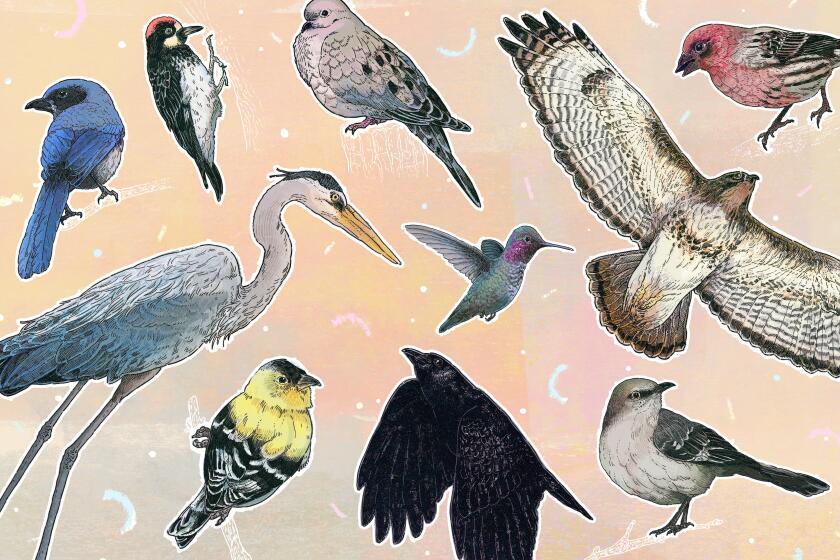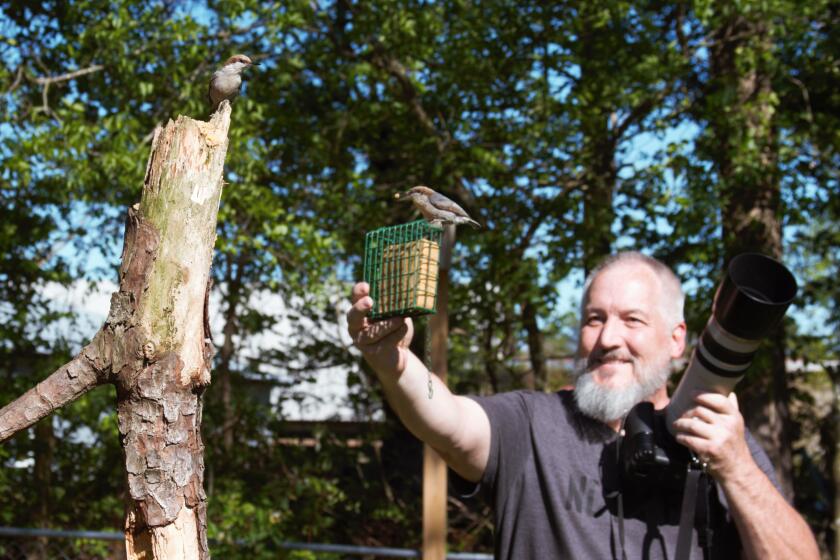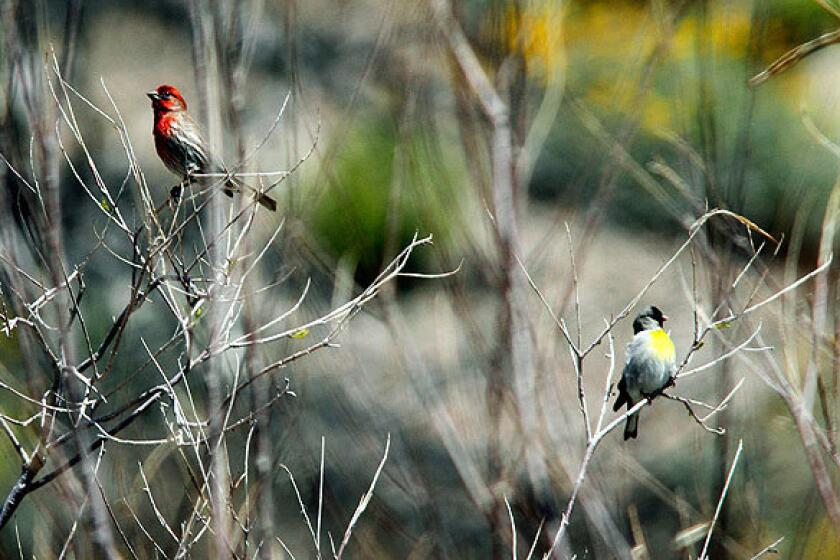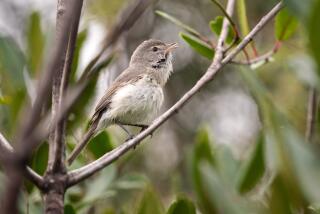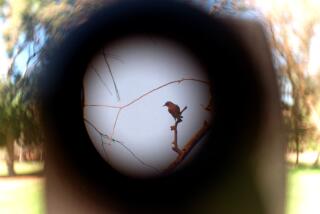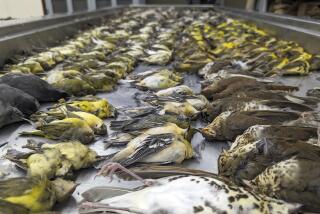What bird is that? 7 apps that will answer your birding questions
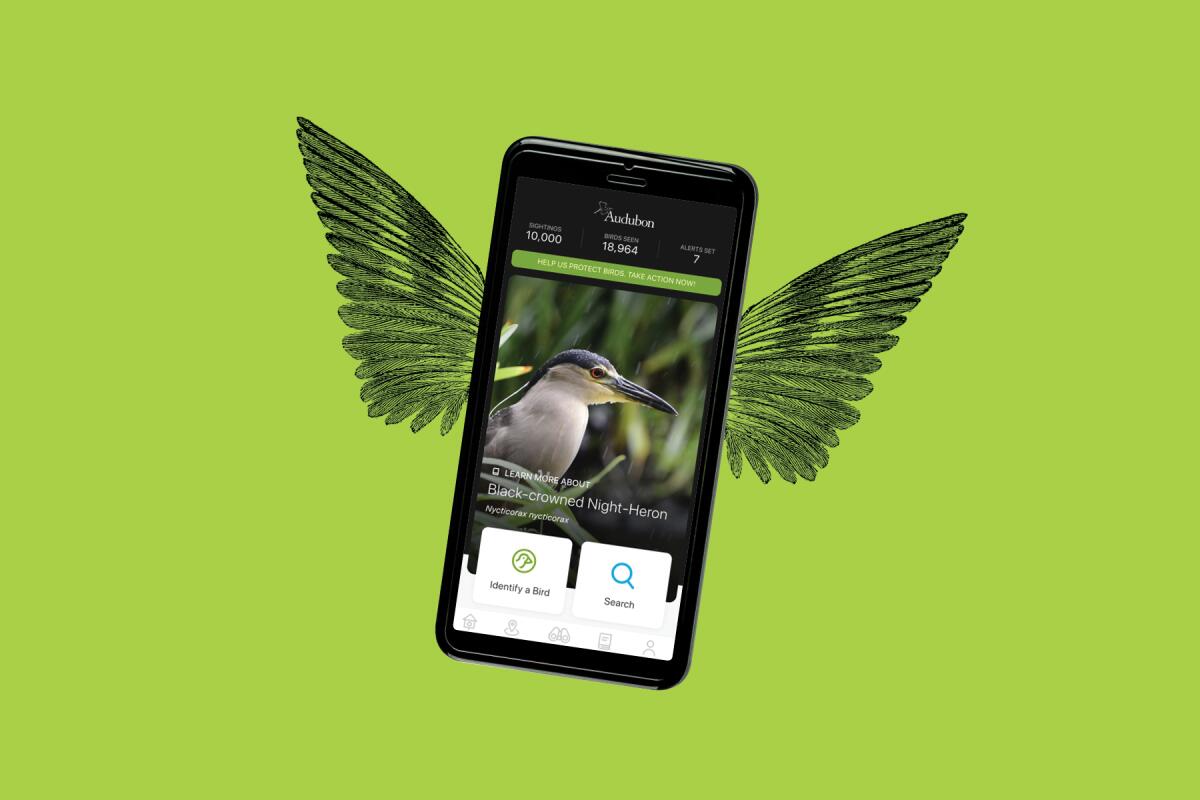
- Share via
Each spring I wake to the sound of a bird purring in my neighbor’s trees. Now, I know birds don’t purr, but that’s the best word I could come up with to describe the sound. It wasn’t chirping. It didn’t seem like a flirty mating song. It was a little like a throaty, thrumming hoot. Could it be an owl?
I finally asked a birding friend and felt foolish trying to describe the purr. “There’s an app for that,” she said. Why hadn’t I thought of it? Of course there’s an app to help you identify birdcalls.
This spring, I was ready: The Smart Bird ID app (free, $7.99 upgrade package), which records and identifies birdcalls, was loaded on my iPhone. The mystery of the hooting, purring bird was solved last week. Dawn had barely broken when I woke to the sound of that thrumming hoot. I raced outside and discovered it’s a mourning dove; its call is frequently confused with that of an owl.
Here are several other apps worth your time. (Bird app choices are deeply personal: Give free apps a try before spending money on an upgrade. All provide a soothing reprieve from scary headlines.)
Audubon Birds of California: If you live in California and have room in your life for only one birding app, this is it. Some of my favorite features are finding viewing “hot spots” and sighting alerts from birders within a 30-mile radius. Free, but consider a donation to the Audubon Society.
Merlin Bird ID from Cornell Labs: This one is just fun. Spot a bird, answer five simple questions about it —size, coloring, etc. — and see if Merlin can figure it out. My results have been mixed — sometimes I find the bird I’m looking for, sometimes I don’t — but it’s fun to see the possibilities. Free, but consider a donation to the Cornell Lab of Ornithology.
It’s easy to start birding in your backyard. All you need are binoculars and a bit of curiosity
eBird from the Cornell Lab of Ornithology: Helps you find local birds. Free. Even if you don’t intend to chase sightings on your own, you’ll feel the excitement of watching others do it and then share photos. Also: Sign up for rare bird alerts.
Audubon Bird Guide: If you travel, look for bird apps that focus on your destination. (There’s a Birds of Central Park app, for example.) Otherwise, this app is an encyclopedia of all things feathered, ideal for flipping through when you have downtime or want to decompress. Free.
With coronavirus restrictions dragging on, interest in bird-watching has soared
iBird Ultimate Guide to Birds: Advanced birders love this one, but it might be overwhelming for newcomers, not to mention the $19.99 price tag. Keep this one on the back burner until you decide you need more than what free apps provide.
Bird life lists
Keeping tabs on the birds you’ve seen is a personal preference. Some birders prefer a handwritten log. Here are two if you prefer something more high-tech:
eBird by the Cornell Lab of Ornithology: Most apps have some kind of function that allows you to keep track of birds you’ve spotted, and many birding fans think eBird is the one app that can do it all. This app has gotten rave reviews from birdwatchinghq.com. Free.
The arrival of spring has birds are talking to each other more. Being stuck at home is the perfect opportunity to learn to understand what they’re saying.
Bird Journal: This also gets rave reviews from birdwatchinghq.com, in part because of all the extras. It allows you to make notes on butterflies and other wildlife you might encounter. The basic app offers plenty, but a $39.99-a-year subscription unlocks maps, graphics, species counts and other premium features.
Additional resources
Doing a little research will help you start birding. Find out whether your community has a bird guide. Long Beach, for example, offers a guide to the birds commonly found at El Dorado Nature Center. And there are Audubon societies in both Los Angeles and Orange counties that offer activities and information on local birds.
More to Read
Sign up for The Wild
We’ll help you find the best places to hike, bike and run, as well as the perfect silent spots for meditation and yoga.
You may occasionally receive promotional content from the Los Angeles Times.
